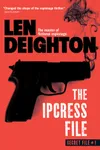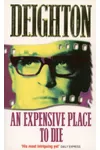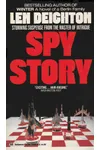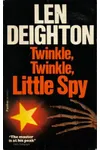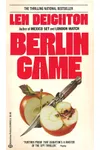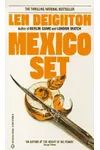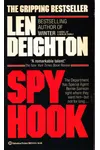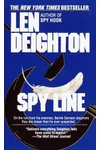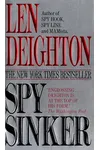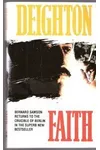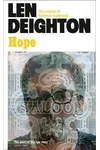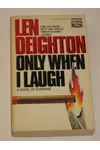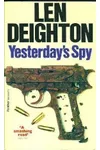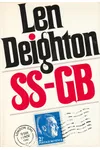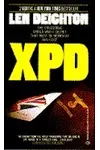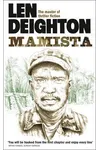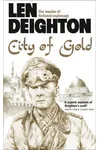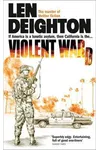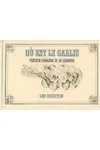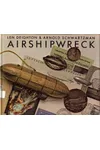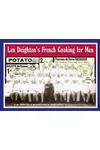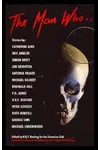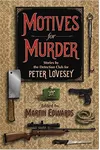Picture a British storyteller who swapped kitchen aprons for spy novels, crafting gritty tales that redefined espionage fiction—meet Len Deighton! Born in 1929 in London’s Marylebone, Deighton rose from humble roots to become a literary icon, blending sharp wit, meticulous research, and working-class heroes in novels like The IPCRESS File. His unique mix of Cold War intrigue, military history, and even cookery books has captivated readers for decades.
Deighton’s knack for authenticity and complex narratives made him a standout in the spy genre, challenging the polished glamour of James Bond with sardonic, relatable protagonists. Let’s dive into the life and legacy of this multifaceted author who cooked up stories as skillfully as he did recipes.
The Making of Len Deighton
Born to a chauffeur father and a part-time cook mother, Len Deighton grew up in a working-class London neighborhood. At 11, he witnessed the arrest of Nazi spy Anna Wolkoff, an event that sparked his lifelong fascination with espionage. After serving in the Royal Air Force as a photographer, he studied at the Royal College of Art, later working as an illustrator and ad agency art director. His creative breakthrough came during a 1960 holiday in France, where he penned The IPCRESS File, a novel that would launch his literary career.
Deighton’s diverse early career—pastry cook, airline steward, and illustrator for Jack Kerouac’s On the Road—infused his writing with a grounded perspective. His mother’s culinary influence also shaped his love for cooking, leading to a surprising side hustle as The Observer’s food columnist.
Len Deighton’s Unforgettable Stories
Deighton’s debut, The IPCRESS File (1962), introduced a nameless, cynical spy (later named Harry Palmer in films) who navigated Cold War brainwashing and bureaucratic betrayal. Its gritty realism and intricate plotting made it a bestseller, selling over 2.5 million copies in three years. The novel’s success spawned sequels like Funeral in Berlin (1964), a tense tale of defection in a divided city, and Billion Dollar Brain (1966), which pitted the hero against a megalomaniacal billionaire.
His Bernard Samson series, starting with Berlin Game (1983), elevated his craft further. This trilogy of trilogies followed a flawed, loyal agent grappling with personal and professional betrayals. Deighton’s style—marked by complex narratives, extensive research, and sharp social commentary—set him apart. He wove class tensions and ethical dilemmas into his plots, reflecting his own experiences as a grammar school boy among elites. Beyond espionage, Deighton explored World War II in Bomber (1970), a harrowing account of a bombing raid, and penned cookery books like Len Deighton’s Action Cook Book (1965), demystifying recipes with his signature ‘cookstrips.’
Deighton’s versatility shone in his non-fiction, including military histories like Blitzkrieg (1979), praised for its thoroughness. His ability to juggle genres while maintaining authenticity cemented his reputation as a literary chameleon.
Why Len Deighton Matters
Len Deighton revolutionized spy fiction by grounding it in realism and class consciousness, paving the way for authors like John le Carré and Charles Cumming. His working-class heroes, like Harry Palmer (famously portrayed by Michael Caine), challenged the genre’s upper-class tropes, resonating with a post-war audience craving authenticity. Films like The IPCRESS File (1965) and Funeral in Berlin (1966) brought his vision to global screens, embedding his influence in pop culture.
At 95, Deighton’s legacy endures through his intricate storytelling and genre-defining contributions. His ability to blend espionage with human struggles—loyalty, betrayal, and identity—continues to captivate readers, while his cookery books remain a quirky testament to his eclectic talents.
- Born: February 18, 1929, in Marylebone, London
- Key Works: The IPCRESS File, Funeral in Berlin, Berlin Game, Bomber
- Notable: Designed the first UK cover for Jack Kerouac’s On the Road
- Fun Fact: Wrote cookery columns for The Observer, illustrated with his own ‘cookstrips’
About Len Deighton
Ready to uncover the shadowy world of Cold War espionage? Snag The IPCRESS File or Berlin Game and dive into Len Deighton’s thrilling, authentic storytelling!
